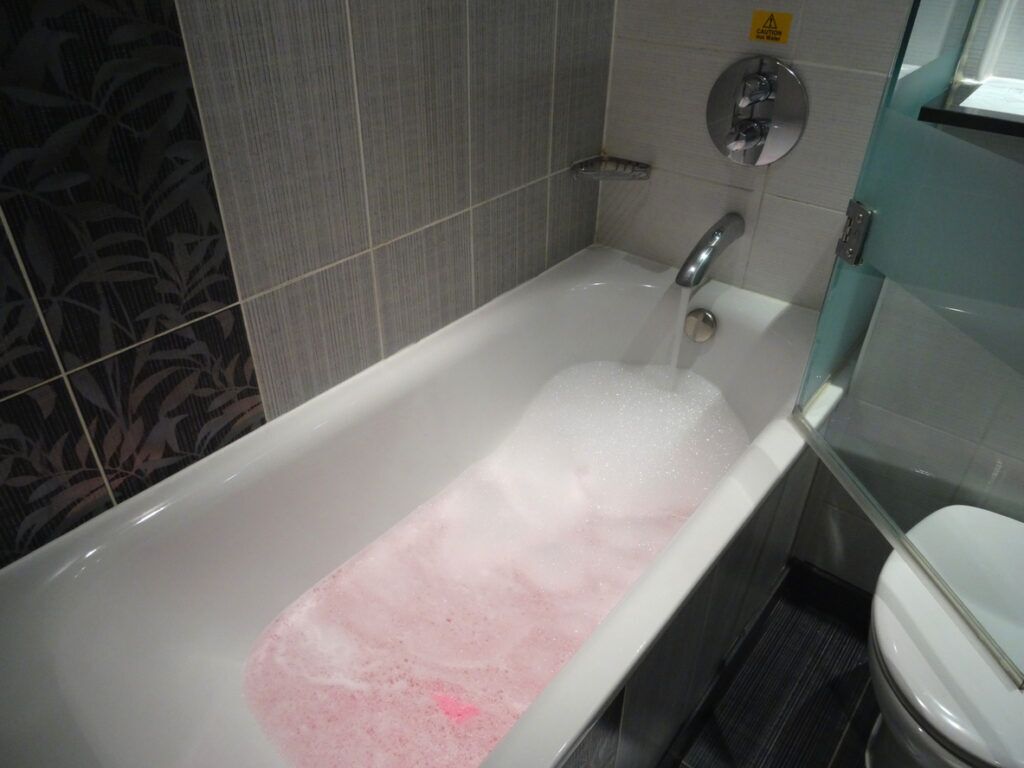Significant Explanations for Drainage in the Bathtub
Significant Explanations for Drainage in the Bathtub
Blog Article
We have encountered this great article pertaining to Why is There Sewage Coming Up Through the Bathtub listed below on the net and figured it made sense to write about it with you here.

Sewage back-up in the bathtub can be a traumatic and unsanitary issue for any type of house owner. Not only is it inconvenient, but it additionally positions serious health and wellness dangers and suggests underlying issues with the plumbing system. Recognizing why sewer is showing up through the bathtub is critical for taking appropriate activity to resolve the trouble properly.
Intro to the Concern
Usual Factors for Sewer Back-up
Clogs in the Sewage System Line
One of the most typical sources of sewer back-up is a blockage in the sewer line. This can take place as a result of the build-up of debris, oil, or international objects in the pipelines, stopping proper flow and triggering sewer to back up into your bath tub.
Tree Root Breach
Tree roots looking for dampness and nutrients can penetrate sewer lines via little splits or joints. Gradually, these origins can grow and broaden, triggering significant damages to the pipes and bring about sewer back-up problems.
Understanding the Trouble
When sewage draws back up into the bath tub, it's a clear indicator of an issue with the water drainage system. The wastewater that ought to be moving away from your home is instead finding its back right into your living space, which can bring about substantial damage and carcinogen.
Prospective Reasons
Several factors can add to sewer back-up in the bath tub. From obstructions in the drain line to problems with the plumbing facilities, recognizing the source is essential for locating a solution.
Aging Infrastructure
Older homes may have outdated plumbing systems that are more vulnerable to rust, splits, and deterioration. As pipelines age, they come to be extra vulnerable to leakages and obstructions, boosting the probability of sewage backup incidents.
Heavy Rainfall or Flooding
Throughout durations of heavy rainfall or flooding, the sewer system might end up being overwhelmed with excess water, triggering backups and overflows. This can cause sewage backing up right into bathtubs and various other components inside the home.
Indicators of Sewer Backup
Foul Odors
Undesirable odors rising from drains or components, especially in the washroom, might indicate sewer backup problems. These odors are commonly strong and consistent, signaling a trouble that requires instant focus.
Slow Draining Fixtures
Tubs, sinks, and toilets that drain pipes gradually or not at all could be experiencing sewage back-up. If several fixtures are influenced concurrently, it's likely that the concern originates from a typical factor, such as the primary sewer line.
Gurgling Noises
Odd gurgling or gurgling noises originating from drains pipes when water is running elsewhere in your house are a sign of air trapped in the plumbing system. This air accumulation can arise from sewage back-up and should be explored quickly.
Wellness Risks Associated with Sewer Back-up
Contamination of Water
Sewage back-up can infect the water system in your house, posing a severe wellness threat to you and your family. Exposure to contaminated water can bring about intestinal issues, skin infections, and various other diseases.
Mold Development
Moisture from sewer backup can create excellent conditions for mold and mildew growth in your house. Mold spores can worsen breathing troubles and cause allergies in delicate individuals, making prompt cleanup crucial.
Spread of Illness
Sewer contains dangerous microorganisms, infections, and bloodsuckers that can trigger a series of illness, including liver disease, cholera, and gastroenteritis. Coming into contact with sewage or polluted surfaces puts you in danger of infection.
Tidying up After Sewer Back-up
Disinfection Procedures
Extensively disinfect and disinfect influenced locations after sewer back-up to eliminate hazardous bacteria and stop mold growth. Usage appropriate cleansing products and protective equipment to make sure safe and efficient cleanup.
Remediation of Impacted Areas
Fix any damages to floor covering, wall surfaces, or components caused by sewer back-up. Relying on the level of the damage, you may require to change carpets, drywall, or various other materials to recover your home to its pre-loss condition.
Immediate Actions to Take
Shutting Off Supply Of Water
In the event of sewage backup, it's essential to turn off the water supply to stop additional contamination and damages. Find the main water shutoff valve in your house and shut it off till the problem can be fixed.
Getting In Touch With an Expert Plumber
Handling sewer backup is not a do it yourself job. Get in touch with a licensed plumber with experience in managing sewage-related concerns to assess the circumstance and execute required repair services or cleanings.
Avoiding Contact with Polluted Water
Until the sewage back-up is resolved, avoid contact with polluted water to avoid the spread of microorganisms and microorganisms. Use protective gear if you must remain in the damaged location and wash your hands extensively later.
Preventive Measures
Regular Upkeep of Drain Lines
Schedule regular examinations and upkeep of your sewer lines to determine and address prospective problems before they rise right into major issues. This can include clearing out debris, inspecting for tree origin invasion, and repairing any type of damaged pipes.
Installing Bayou Shutoffs
Take into consideration mounting backwater shutoffs in your plumbing system to avoid sewage from receding into your home during durations of heavy rainfall or flooding. These valves automatically close when water draws back up, safeguarding your property from contamination.
Appropriate Disposal of House Waste
Prevent purging anything besides bathroom tissue and human waste down the toilet to prevent blockages and clogs in the sewer line. Dispose of oil, oil, and other home chemicals correctly to decrease the danger of plumbing issues.
Why Is Water Backing Up in My Bathtub When I Flush My Toilet?
What to do about a sewer line clog
First, don’t bother with plunging. No amount of plunging will dislodge the clog in a sewer line. The clog is too far away. Plungers are for clogs in the toilet itself, not the sewer line. Plus, the most likely causes of a sewer clog are:
Tree roots Flushed toys or feminine products Grease buildup Those items don’t move easily. And in the case of tree roots, the roots need to be cut out of the pipe and the pipe will need to be repaired.
You’ll need a closet auger. A closet auger is a type of plumber’s snake with a protective cover to keep from scratching the delicate porcelain toilet. If the clog is further down, you may need to remove the toilet or use one of your cleanouts to get to the clog.
We also recommend doing a video inspection of the drain to ensure that the cause of the clog has been completely removed. Otherwise, you could have the same problem again in a few days or weeks.
https://mspplumbingheatingair.com/blog/why-is-water-backing-up-in-my-bathtub-when-i-flush-my-toilet

We hope you enjoyed our article about What to Do if Sewage Starts Coming Up Through Your Bathtub. Thanks so much for taking a few minutes to read our piece of content. Enjoyed our blog entry? Please share it. Help other people locate it. Bless you for your time. Come back soon.
Call Today
Report this page